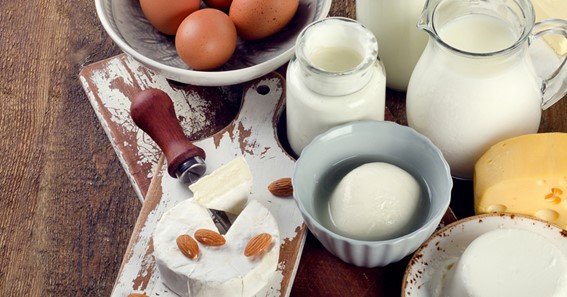Dairy products are a staple in many diets around the world, praised for their rich nutritional content. But when it comes to vitamin C, a common question arises: Is there vitamin C in dairy? While dairy is known for its calcium, vitamin D, and protein, the presence of vitamin C is often a topic of curiosity. In this article, we’ll explore the surprising truth about Vitamin C in dairy, the nutritional benefits, and what you need to know to maintain a balanced diet.
Do Dairy Products Have Vitamin C?
If you’re asking, “Is there vitamin C in dairy?,” the answer is yes, but not in significant amounts. Dairy products like milk and cheese contain very small traces of vitamin C. Unlike citrus fruits or leafy greens, dairy is not a primary source of this essential vitamin. The vitamin C content in milk is relatively low and often not enough to meet daily requirements. Therefore, if you rely on dairy alone, you might not get sufficient vitamin C.
Nutritional Content of Dairy: Beyond Vitamin C
Although dairy isn’t a major source of vitamin C, it’s packed with other essential nutrients that make it a valuable addition to any diet. Here’s a closer look at the nutritional content of dairy:
- Calcium: Essential for strong bones and teeth.
- Vitamin D: Supports calcium absorption and bone health.
- Protein: High-quality protein that aids in muscle repair and growth.
- Potassium: Helps maintain normal blood pressure.
- B Vitamins: Dairy is rich in vitamins like B2 (riboflavin) and B12, crucial for energy metabolism.
What About Vitamin C in Milk?
While dairy as a whole has limited amounts of vitamin C, fresh milk contains slight traces of it. The vitamin C content in milk is minimal because it’s not typically fortified with vitamin C, unlike vitamin D or calcium. Additionally, pasteurization, the heat treatment used to kill bacteria in milk, can reduce the small amount of vitamin C present.
Health Benefits of Dairy Products
Dairy may not be your go-to for vitamin C, but the health benefits of dairy products are undeniable. Here’s why you should include dairy in your diet:
- Bone Health: Rich in calcium and vitamin D, dairy products support bone density and reduce the risk of osteoporosis.
- Muscle Growth: The high-quality protein in dairy promotes muscle growth and recovery.
- Heart Health: Low-fat dairy options can help manage cholesterol levels, benefiting heart health.
- Digestive Health: Fermented dairy products like yogurt contain probiotics that support gut health.
- Energy Boost: The B vitamins in dairy provide an energy boost by aiding in carbohydrate metabolism.
Dairy Sources of Vitamin C: Do They Exist?
While dairy products are generally not known for their vitamin C content, some fermented dairy products, like kefir, may have slightly higher levels due to the presence of probiotics and fermentation processes. However, these amounts are still low compared to other natural sources of vitamin C, such as fruits and vegetables.
Nutrients in Milk and Dairy Products
Here’s a breakdown of the key nutrients found in dairy:
- Calcium: Essential for bone health.
- Protein: Supports muscle function.
- Potassium: Regulates blood pressure.
- B Vitamins: Important for energy production.
- Small amounts of Vitamin C: Present in fresh, unpasteurized milk.
FAQ
- Is there vitamin C in dairy?
- Yes, dairy contains small traces of vitamin C, but not in significant amounts to meet daily needs.
- Can I rely on dairy for my daily vitamin C intake?
- No, dairy does not provide enough vitamin C. It’s best to consume fruits and vegetables rich in vitamin C.
- What are the main nutrients in dairy besides vitamin C?
- Dairy is rich in calcium, vitamin D, high-quality protein, potassium, and B vitamins.
- Does pasteurization affect the vitamin C content in milk?
- Yes, pasteurization can reduce the small amount of vitamin C present in fresh milk.
- Are there dairy products with more vitamin C than others?
- Some fermented dairy products like kefir may have slightly higher vitamin C content, but they still remain a minor source compared to fruits.










